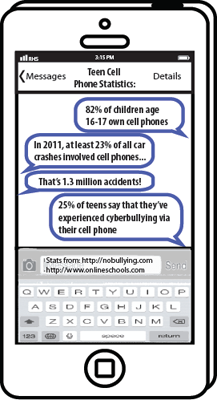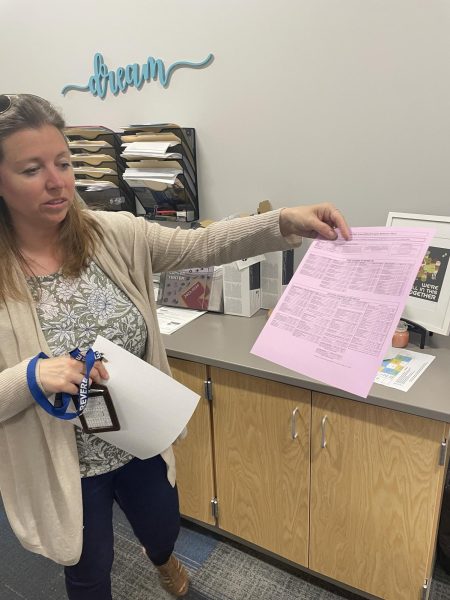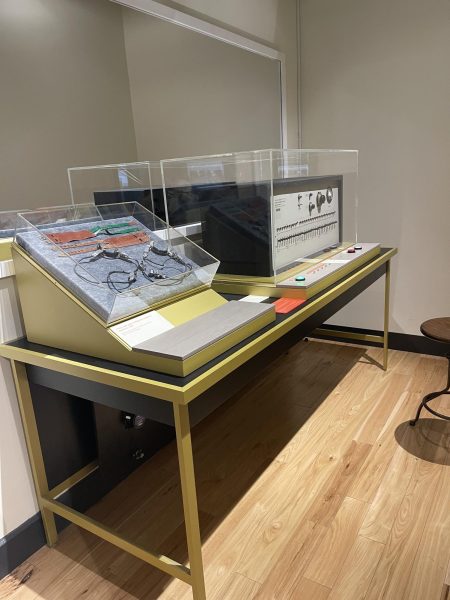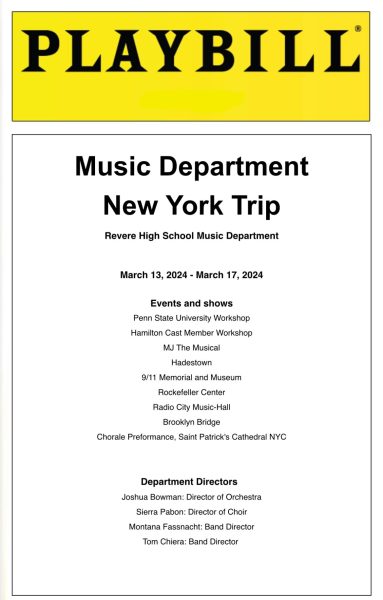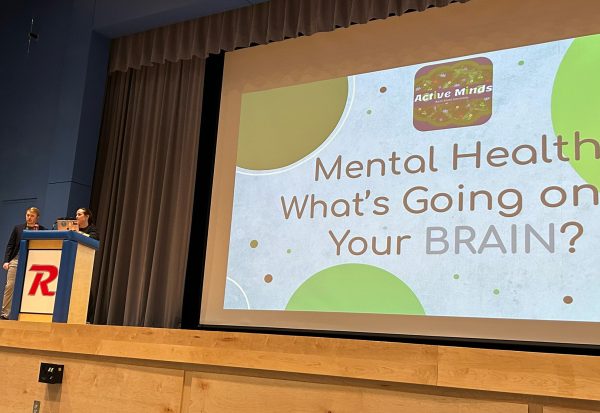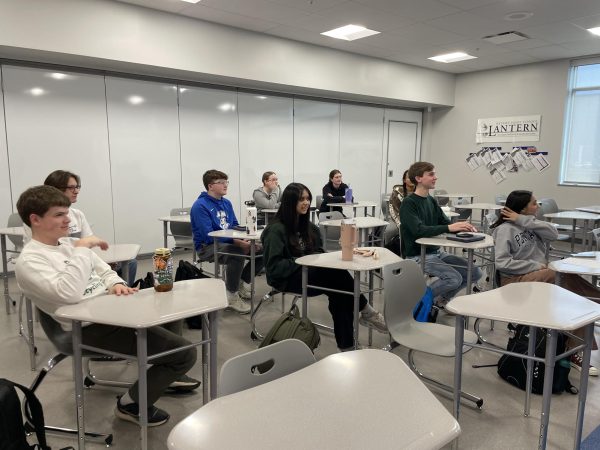SRO participates in phone safety seminars
Revere’s student resource officer participated in a parent seminar aimed at teaching parents how to monitor their children’s cell phones.
The seminar took place on November 7th, at the ACME store located in Montrose. The Bath Police Department worked with Verizon Wireless to hold the program. Revere student resource officer (SRO) Eric Shaffer and two other presenters held three one-hour seminars, with over 75 parents attending. Shaffer described the purpose of the program.
“The program was intended [to] educate the parents on what they can do when it comes to their child’s cell phone and how they can monitor [them],” Shaffer said.
Shaffer also explained his role in the seminar.
“My role in the program was to provide information of what we are seeing as law enforcement when it comes to cell phones and how young people are using them . . . . My main message to the parents was [that] they are the ones who are ultimately responsible for what goes in and out of the cell phone they allow their children to use. Parents pay the bill, which means they own the phones,” Shaffer said.
The seminar covered various methods that parents can use to monitor their children’s cell phones, including programs provided by cell phone carriers such as Verizon and AT&T, as well as other websites and applications that provide similar services. Shaffer spoke about the Verizon FamilyBase program, one resource available to parents.
“Verizon FamilyBase programs allow parents to monitor contacts, usages, GPS and control child’s phone from their phone, [regarding] turning on and off. [Verizon can also] provide service that do not allow [a child’s] phone to receive texts while driving,” Shaffer said.
Shaffer also described the services provided by TeenSafe.com, one website featured in the presentation.
“TeenSafe.com [allows parents] to monitor incoming, outgoing and deleted texts, [as well as] contacts, all messages using social media, photos, GPS locations and much more,” Shaffer said.
Shaffer spoke of the positive reception of the program by the parents who attended.
“The response was very positive. Most parents were unaware that there [are] programs out there that help monitor phones. I feel [that] a lot of parents know of the dangers that are out there but were still surprised about the information,” Shaffer said.
RHS principal Phil King discussed the dangers that cell phones can pose to students.
“[Students should] refrain from putting anything online that is negative directed towards another individual. Once it is online, someone can always find it, even on Snapchat,” King said.
In addition to this seminar, Revere has added a Parent Alerts: Teen Trends section to the Revere website in the past year to help spread more information to parents. Laura Bell, a Technology Support Specialist at Revere, currently maintains this section of the website in collaboration with Kay Quigley, the Chemical Prevention Specialist for the school district. Bell and Quigley receive information about risky teen trends and tips for parents from an online resource, KNOW!. Counselors, police departments, parents and other community members can also submit articles to the website. Like the cell phone monitoring program, the Parent Alert section of the website helps to communicate information to Revere parents. Bell described the benefit of the Parent Alert portion of the Revere website.
“It is an awareness communication to relay information. While we cannot measure results [of the page], we know that at least some parents and hopefully students are learning,” Bell said.
Shaffer explained future plans for the cell phone monitoring program.
“We have talked about presenting again…for those who were not able to attend the last [session]. Other than that…I hope to continue to spread the message through the schools,” Shaffer said.
Bell and Quigley welcome feedback from both staff and students about the website. Students are encouraged to speak to their parents, school staff or local law enforcement if they have any concerns about questionable activity that they see on their cell phones or on the Internet.

